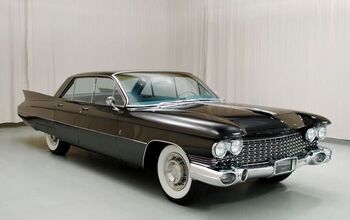America's Next Top Bubble: Delinquencies Down, Deals Up In ABS Land
The largest asset-backed securities deal since prior to the mortgage crisis, worth $1.6 billion, was announced last week. Meanwhile, one ratings agency is touting their low delinquencies as positive signs in the ABS market.
T he subprime mega deal was reportedly helmed by Santander, a major Spanish bank that is also Chrysler’s lending partner. Recent developments have had many observers questioning whether Chrysler’s phenomenal sales boom in 2012 was in fact spurred on by subprime loans. Credit rating agency Experian said that nearly 30 percent of new car loans issued by Chrysler went to subprime buyers. Meanwhile, a Top 10 car list for subprime buyers compiled by one online lender showed that Chrysler products made up 40 percent of the list.
Meanwhile, ratings agency Fitch was rosy in its outlook of ABS products, noting that
Both losses and delinquencies declined across prime and subprime auto ABS even as used vehicle values softened and are expected to moderate further this year. Subprime 60+ day delinquencies fell to 3.02% in March from 3.65% in the prior month, dropping 17% both on a MOM (month over month) and YOY (year over year) basis. Subprime ANL (annualized net losses) were 3% down in March to 5.36% from 5.53% in February. On a YOY basis, subprime ANL were still 14% higher in last month versus March 2012.
Our usual grain of salt comes in the form of cautious practices on the part of Fitch. The agency has been more conservative than most in rating subprime ABS deals, to the point where Fitch has been excluded from rating deals that some observers have considered rather risky.
More by Derek Kreindler


































Comments
Join the conversation
Wall Street has been dealing in subprime auto loans for over 20 years. They have become a fairly well understood commodity. ABS for these loans works just fine from a financial point of view as long as the ultimate buyers of the various pieces of the ABS's have a realistic expectation about the borrowers' default rate during the next recession. So, I am in full agreement with the previous poster that in the next recession there is unlikely to be a financial fallout from this sector. The problem for you car guys in the next recession will be what to do with all the repos. Subprime auto loan ABS's have made the motor vehicle market peaks and valleys more extreme. The good news is that some financial guys should have a good handle on potential peak default rates, certainly by borrower credit score and geographic area and probably by make and model of the vehicle. You want to find financial folks who deal in the high-risk tranches of these ABS's since it's their asses that are most on the line when borrower defaults go up. Once you do some of this, you may be able to figure out your best car dealing strategy for the next recession.
last time there was a big nail driven into the box, Oel price went berserk. Many jobs disappear, and many can't afford benzene in the tank. Have business tanking and fuel tanks empty!
Given the shortage/high prices of used cars -- it makes perfect sense to me to put someone in a Chrysler 200 or Avenger. The incentive money can be used to reduce the net price or subsidize the interest rate or a little of both. The least popular new vehicles (at MSRP) get discounted until they become a substitute for used vehicles -- supply and demand at work.
If anyone cares, there was a subprime lending problem in the late 1990's .... http://www.bis.org/publ/bcbs_wp13.pdf (see page 63) which had a negligible effect on the US economy. In addition, there was a meltdown in the mobile home industry in the mid to late 1990's. There is always some segment of the American economy that is tanking. In 2001, domestic oil was a disaster. When people buying new cars think they are going to flip them for a profit -- then I would be worried.